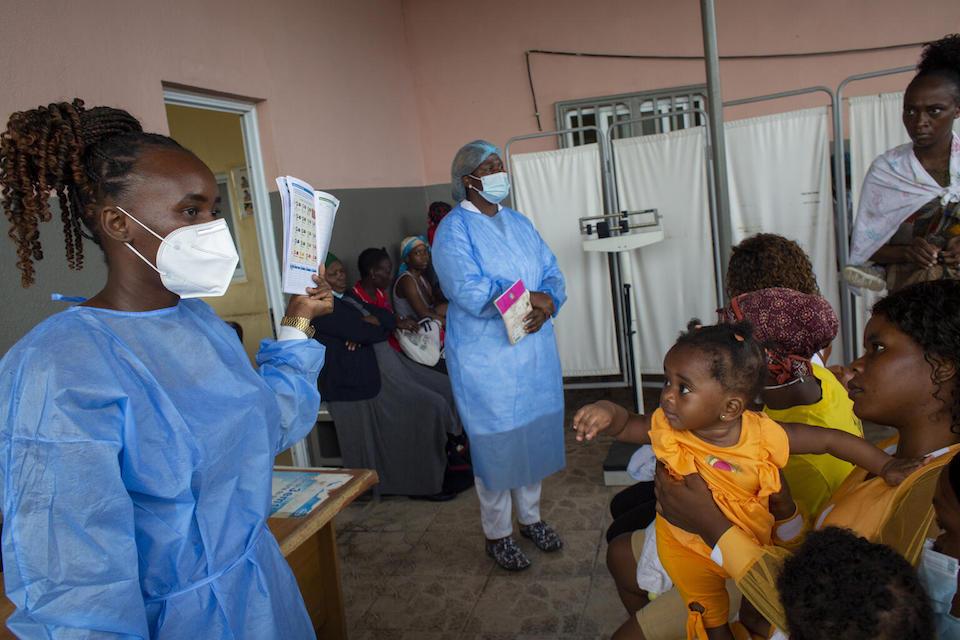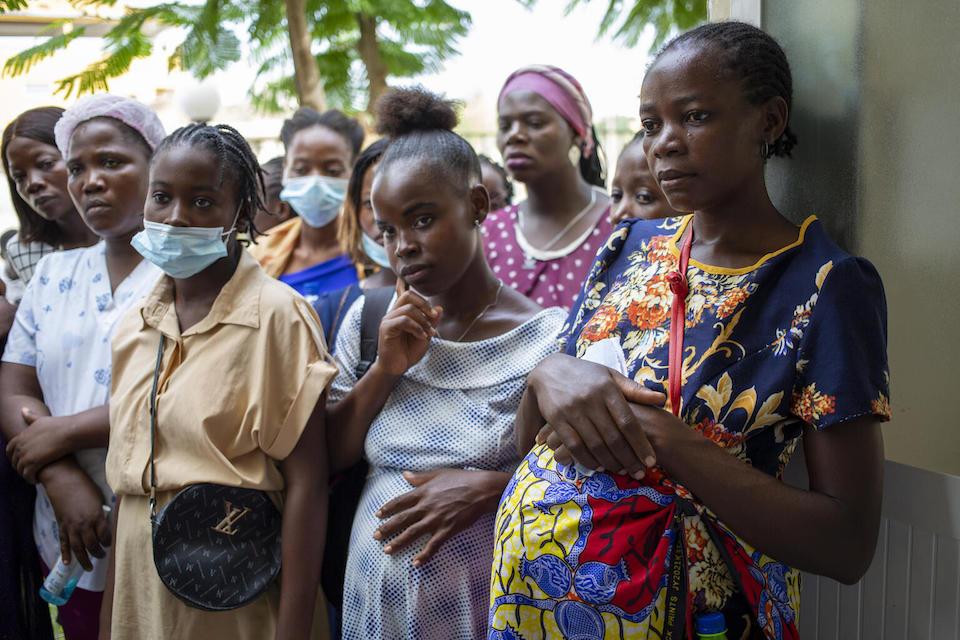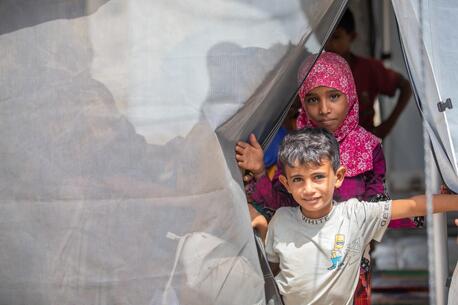
Reaching Zero-Dose Children in Angola With Lifesaving Vaccinations
Angola was 1 of 10 countries with the highest number of unvaccinated children in 2022. With support from UNICEF, a nationwide vaccination campaign is helping to turn the tide.
Angola's decades-long civil war came to a close in 2002, but the country is still struggling to reach every child with lifesaving vaccines.
Even before the COVID-19 pandemic, 30 percent of Angola's children were identified as zero-dose — meaning they've missed out entirely on routine vaccinations, leaving them vulnerable to a range of preventable and potentially deadly diseases.
Vaccines are the world's safest method to protecting children from life-threatening diseases
Poor cold chain infrastructure, a fragile primary health care system, and a widespread lack of trust in vaccines were the main contributing factors to this low rate of immunization.
COVID-19 disrupted health services across the country, making a bad situation even worse.
But a partnership between the Angolan Government, UNICEF and other partners is beginning to turn the tide. The nationwide immunization campaign is helping immunization rates rebound after years of struggle and the exacerbating impact of the pandemic.
Nurse Quénia Pinto vaccinates 40 to 50 children a day

In March, Wilson Abreu brought his 2-month-old twin girls, Kailane and Kaio, for their routine immunizations as part of a regular check-up at Catambor Health Center in Luanda. Both received oral vaccines against polio and rotavirus and two injections with the pneumococcal and pentavalent vaccines.
Abreu winced when his baby daughters received their injections, but says he is happy and relieved to know they are now protected.
For Wilson Abreu's twin baby girls, vaccinations mean a better shot at a healthy childhood

“I like vaccinating children; even if they cry, I know it is for their good," said nurse Quénia Pinto, 28.
"I have been doing this for four years. I vaccinate between 40 and 50 kids every day. I feel I am always on duty; when I am home in the community, people always come and ask me questions and advice.”
Information sessions teach parents about the safety and efficacy of vaccines

Before she vaccinates the babies, Pinto gives a short presentation to all the parents in the waiting room, discussing basic and best health practices for children including breastfeeding. She answers parents' questions about vaccines, and reminds them that vaccination is safe and provides essential protection against potentially fatal diseases.
Babies are weighed and screened for malnutrition

Each child is weighed and measured to track their growth and detect any signs of malnutrition, and given routine immunizations against diseases like tetanus, polio, pneumonia, measles and yellow fever.
Angola has the world's second-highest fertility rate

Through this campaign, immunization is becoming an important part of primary health care for children at a very young age. That’s essential in Angola — the country has the second-highest fertility rate in the world, with an average of 5.9 children per mother.
Updating Angola's cold chain infrastructure

One of the reasons behind lower rates of childhood immunization in Angola was insufficient cold chain infrastructure, which helps to store vaccines at the appropriate temperatures. That’s being addressed in this partnership between Angola’s Health Ministry and UNICEF.
UNICEF is helping to roll out a nationwide remote temperature monitoring system, so that health managers can consistently monitor the temperatures of the vaccines being stored. During the storage period, if for whatever reason the vaccine is exposed to temperatures that are unsafe, health managers receive an alarm. As a result, they can take timely and appropriate action to ensure that only safely stored vaccines are delivered to the child.
Safe storage facilities enable health workers to transport vaccines to local communities

By improving cold chain infrastructure, health workers are able to transport vaccines more easily and reach children and their caregivers in more places, including within their own communities, rather than solely at regional hospitals. Outreach campaigns like this make it easier for mothers to ensure their children get the vaccinations they need to keep them safe.
UNICEF is working tirelessly to make sure that every child, regardless of where they are, has access to the vaccines they need to not only survive, but thrive. Please donate today.
HOW TO HELP
There are many ways to make a difference
War, famine, poverty, natural disasters — threats to the world's children keep coming. But UNICEF won't stop working to keep children healthy and safe.
UNICEF works in over 190 countries and territories — more places than any other children's organization. UNICEF has the world's largest humanitarian warehouse and, when disaster strikes, can get supplies almost anywhere within 72 hours. Constantly innovating, always advocating for a better world for children, UNICEF works to ensure that every child can grow up healthy, educated, protected and respected.
Would you like to help give all children the opportunity to reach their full potential? There are many ways to get involved.





